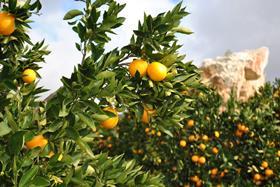
South Africa’s citrus industry has recommended that citrus exports to the EU be suspended for the current campaign.
The step was taken to minimise the risk of further interceptions of fruit carrying CBS (citrus black spot). It is the second year in a row that the South African season in Europe will end prematurely due to the risk of CBS interceptions.
“The South African citrus industry hopes that this decision keenly demonstrates our commitment to meeting the EU’s requirements and keeping the market open,” says the Citrus Growers’ Association (CGA).
The CGA says it has widely consulted with all stakeholders in taking the decision. “We decided to recommend to DAFF (South African Department of Agriculture, Forestry and Fisheries) to proactively suspend the export of citrus fruit, with the exception of soft citrus and Kumquats, as well as exports from the CBS Free regions of the Western and Northern Capes, to the European Union.”
The CGA has recommended that DAFF stop inspecting citrus fruit destined for the EU at end of business on Thursday 17 September 2015. “As an additional measure of risk mitigation, CGA has presented a programme of pre-import DAFF inspections in the EU through one port, namely Rotterdam, to address any possible perceived risk associated with the ‘floating consignments’ that will leave SA after inspections stop on 17 September and the EU market closes.'
Last month the European Standing Committee on Plant Health decided not to immediately impose further measures against South Africa despite the country exceeding the threshold of interceptions.
“The EU’s Food and Veterinary Office (FVO) recent report on their audit carried out in South Africa earlier this year, was in the end pivotal and the improvements and measures of the South African Risk Management (RMS) recognised,” says Deon Joubert, the CGA’s special envoy in dealing with the EU.
However, it is understood that the South Africans also returned home from last month’s discussions in Europe with the clear message that the EU would not grant it any further leeway and would apply regulations strictly.
The latest decisions is seen as an attempt to ensure that no further measures are taken against South Africa and that next year’s marketing season will start without further interference.



